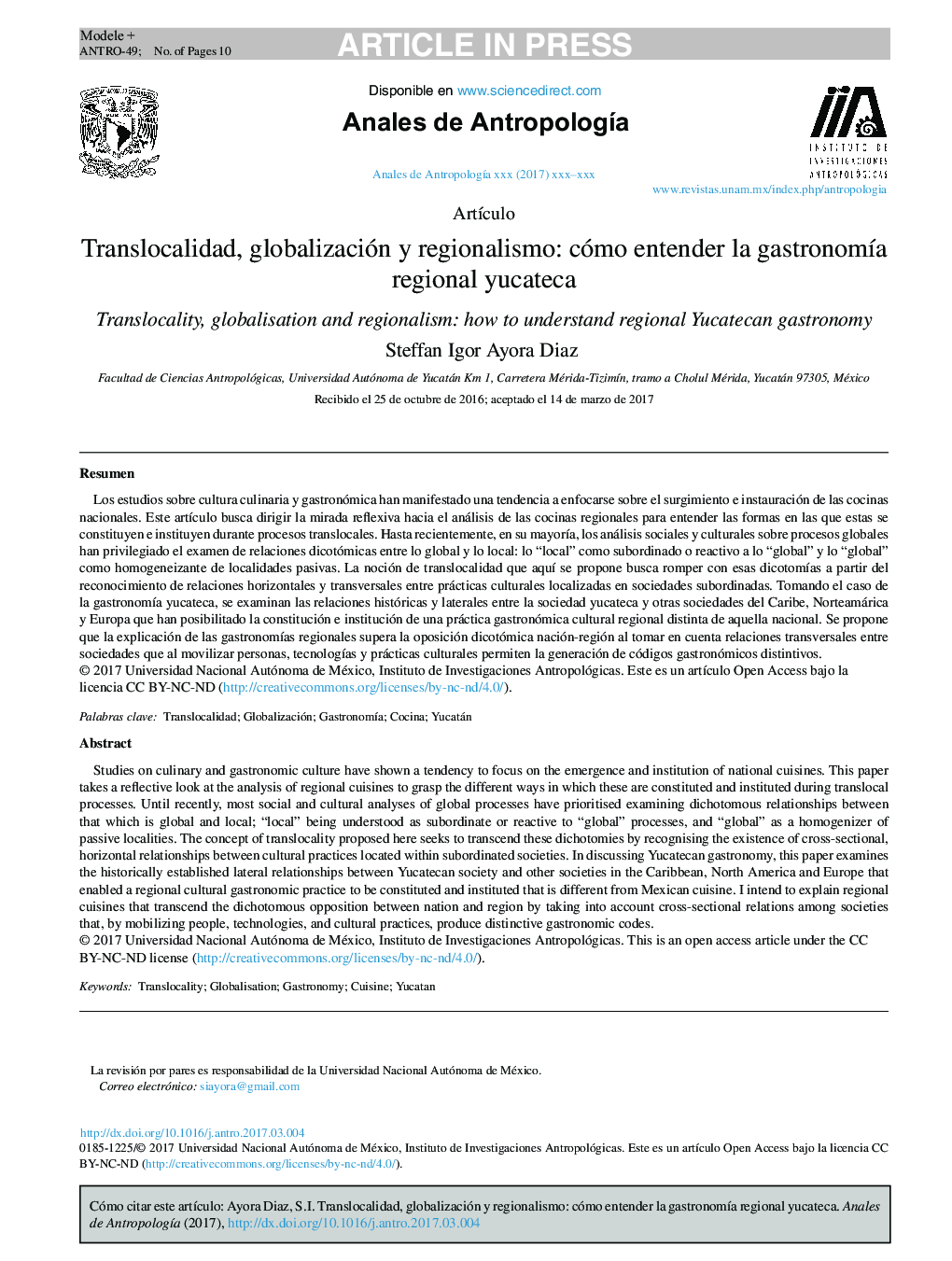| Article ID | Journal | Published Year | Pages | File Type |
|---|---|---|---|---|
| 7550562 | Anales de Antropología | 2017 | 10 Pages |
Abstract
Studies on culinary and gastronomic culture have shown a tendency to focus on the emergence and institution of national cuisines. This paper takes a reflective look at the analysis of regional cuisines to grasp the different ways in which these are constituted and instituted during translocal processes. Until recently, most social and cultural analyses of global processes have prioritised examining dichotomous relationships between that which is global and local; “local” being understood as subordinate or reactive to “global” processes, and “global” as a homogenizer of passive localities. The concept of translocality proposed here seeks to transcend these dichotomies by recognising the existence of cross-sectional, horizontal relationships between cultural practices located within subordinated societies. In discussing Yucatecan gastronomy, this paper examines the historically established lateral relationships between Yucatecan society and other societies in the Caribbean, North America and Europe that enabled a regional cultural gastronomic practice to be constituted and instituted that is different from Mexican cuisine. I intend to explain regional cuisines that transcend the dichotomous opposition between nation and region by taking into account cross-sectional relations among societies that, by mobilizing people, technologies, and cultural practices, produce distinctive gastronomic codes.
Keywords
Related Topics
Social Sciences and Humanities
Arts and Humanities
Arts and Humanities (General)
Authors
Steffan Igor Ayora Diaz,
